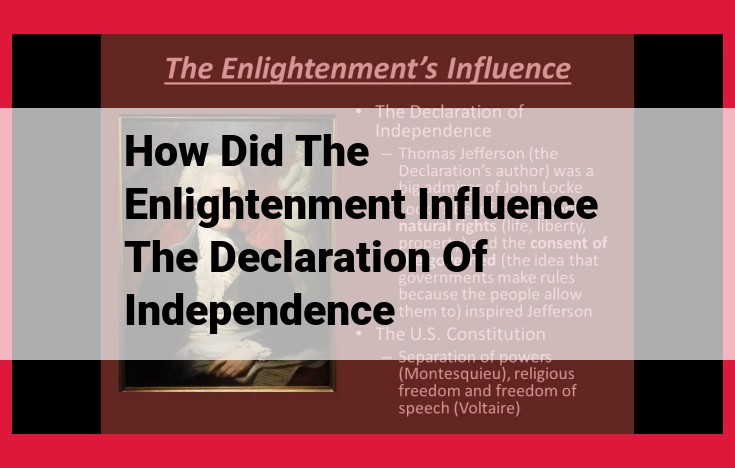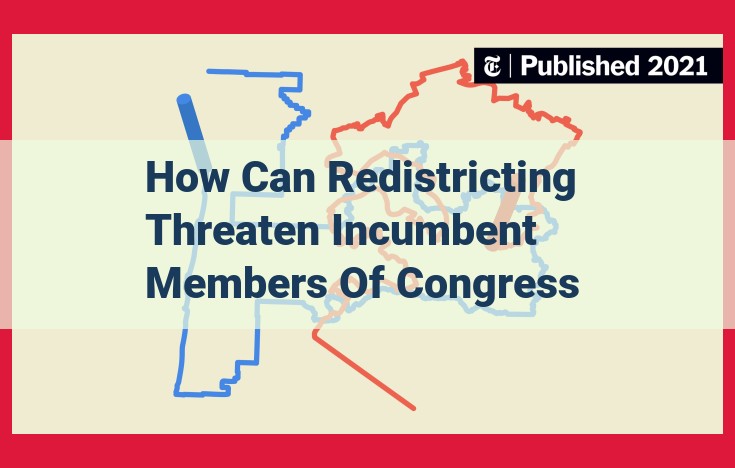John Winthrop’s leadership profoundly transformed Massachusetts’ government. Under his governorship, Winthrop instituted a representative government where freemen elected deputies to the General Court, creating a two-chambered legislature. This innovative system balanced the power between the governor and the people, fostering a sense of shared authority and accountability. Winthrop’s vision for a “City upon a Hill” guided his governance, emphasizing moral and religious values as the foundation for societal order and harmony.
Puritans in Massachusetts: A Pilgrim’s Tale
In the annals of American history, the Puritan movement stands as a cornerstone, shaping the social, religious, and political landscape of the nascent nation. The Massachusetts Bay Colony served as a crucible for this influential movement, providing a stage for its doctrines, beliefs, and trials.
In the early 17th century, pilgrims from England, driven by a deep devotion to their faith, sought refuge from religious persecution. They established the Massachusetts Bay Colony in 1630, hoping to create a “City upon a Hill,” a beacon of righteousness that would inspire the world.
The Puritans believed in a covenant with God, a sacred agreement that bound them to live according to His laws. Their religious beliefs infused every aspect of their society, shaping their laws, institutions, and daily lives.
The Crucible of Puritanism: Religious, Social, and Political Influences in the Massachusetts Bay Colony
In the annals of American history, the Massachusetts Bay Colony stands as a crucible of Puritanism, a society shaped by a complex interplay of religious, social, and political forces. Their unwavering belief in a covenantal relationship with God, rigid social hierarchy, and theocracy forged a unique and often tumultuous society.
Religious Influences:
- Puritanism emerged from the Protestant Reformation, inheriting its emphasis on scriptural authority and the sovereignty of God.
- Puritans believed in the doctrine of predestination, that God had chosen a select few for salvation and the rest were irrevocably damned.
- This belief instilled a profound sense of mission and responsibility, driving Puritans to establish a society that reflected their strict religious principles.
- Their faith permeated every aspect of life, from Sunday sermons to the rigorous enforcement of Sabbath laws.
Social Influences:
- Puritan society was structured around a hierarchy of authority, with ministers holding the highest status.
- Family played a central role, with strict adherence to gender roles and the subordination of women to men.
- Education was highly valued, particularly for boys, who were trained to become future leaders of the colony.
- Strict morals and discipline were enforced through communal surveillance, with neighbors keeping a watchful eye on one another.
Political Influences:
- The Massachusetts Bay Colony was a theocracy, with the Puritan church playing a dominant role in governance.
- Laws were based on biblical principles, and dissenters faced severe punishment.
- The colony was established with a charter granted by the English king, but the Puritans maintained a high degree of autonomy.
- The General Court, a legislative assembly, wielded significant power and included representatives from all towns.
John Winthrop: A Visionary Leader in Puritan Massachusetts
Introduction:
In the tapestry of American history, the Puritan movement in the Massachusetts Bay Colony stands out as a pivotal chapter. Among the influential figures who shaped this era, John Winthrop emerged as an extraordinary leader, his vision casting a transformative light upon the colony.
Winthrop’s Ascendance:
Born into wealth and privilege in England, Winthrop’s path led him to embrace Puritan beliefs. His unwavering commitment to religious freedom and the pursuit of a godly society ignited his passion for the Massachusetts Bay Colony. In 1630, he was elected governor, a position he held for the next 12 years.
A “City upon a Hill”:
Winthrop’s vision for the colony was not confined to its geographic boundaries. He envisioned it as a “City upon a Hill,” a shining example of Christian living that would inspire the world. He believed that by adhering to God’s laws and creating a just and harmonious community, Massachusetts could serve as a beacon of hope and redemption.
Governance and Law:
Winthrop’s leadership extended beyond spiritual guidance. He established a representative government, instituting a General Court that shared legislative and judicial powers. Under his direction, the colony crafted the Body of Liberties, one of the first comprehensive legal codes in Colonial America, protecting individual freedoms and establishing a framework for fair and impartial law.
Legacy and Impact:
Winthrop’s vision and leadership left an enduring mark on Massachusetts and beyond. His emphasis on religious freedom, education, and community laid the foundation for a society that valued moral integrity, intellectual inquiry, and civic engagement. His unwavering belief in the transformative power of faith continues to inspire generations of Americans.
Roger Williams: Champion of Religious Tolerance and Founder of Rhode Island
A Trailblazing Spirit in the Heart of Puritanism
In the tapestry of Puritan New England, Roger Williams emerged as a beacon of religious tolerance, challenging the very foundations of the Massachusetts Bay Colony. His unwavering belief in the separation of church and state led him to advocate for the rights of all to worship as they chose, a concept that was considered radical at the time.
A Dissident in a Colony of Conformity
As a minister in Salem, Williams openly denounced the colony’s persecution of dissenters, particularly the Quakers. He argued that civil authorities should not interfere with matters of conscience and that each individual had the right to believe and practice their own faith. His outspokenness drew the ire of the Puritan leaders, who banished him in 1635.
Founding Rhode Island: A Haven for the Persecuted
Undeterred, Williams embarked on a daring journey into the wilderness, where he established the settlement of Providence. This new colony became a safe haven for religious minorities and dissenters, where they were free to worship without fear of persecution.
A Legacy of Tolerance and Freedom
Williams’s vision of religious tolerance and separation of church and state had a profound impact on the development of American society. His principles became enshrined in the First Amendment of the US Constitution, guaranteeing freedom of religion as a fundamental right.
Key Points to Remember:
- Roger Williams was a Puritan minister who advocated for religious tolerance.
- He was banished from Massachusetts for his beliefs and founded Rhode Island as a haven for religious minorities.
- Williams’s principles became the foundation for the First Amendment’s protection of religious freedom.
John Cotton: The Influential Puritan Minister
In the annals of Puritanism, the name John Cotton stands tall as a figure of immense significance. Serving as the minister of the First Church of Boston, Cotton’s eloquence and theological prowess shaped the religious, social, and political landscape of the Massachusetts Bay Colony.
Cotton’s influence stemmed from his profound scholarship. His sermons and writings delved into the intricacies of Puritan theology, expounding on the concepts of covenant theology, predestination, and the importance of personal piety. His teachings not only captivated his congregation but also inspired a generation of Puritan leaders.
Beyond his theological contributions, Cotton played a pivotal role in shaping the legal and political framework of the colony. He was instrumental in drafting the Body of Liberties, a compilation of laws that codified the Puritan beliefs and principles of governance. His influence extended into the political realm as well, as he served as an advisor to Governor John Winthrop and wielded considerable sway in matters of public policy.
Furthermore, Cotton’s ministry had a profound impact on the everyday lives of the Puritan settlers. He emphasized the importance of community and social cohesion, encouraging his flock to live in harmony with their neighbors. His sermons and writings provided guidance on all aspects of life, from family relationships to economic matters.
In conclusion, John Cotton’s influence on Puritanism in the Massachusetts Bay Colony was multifaceted and far-reaching. As a theologian, he shaped the core beliefs and principles of the Puritan faith. As a political figure, he helped shape the colony’s laws and institutions. And as a minister, he guided the lives of countless Puritan settlers, leaving an indelible mark on the social and religious fabric of their society.
The Massachusetts Bay Colony: A Puritan Paradise or a Restrictive Society?
In the early days of the 17th century, a group of English Puritans embarked on a perilous journey across the Atlantic Ocean to establish a new colony in the New World. Their goal was to create a society that adhered strictly to their religious beliefs, free from the perceived corruption and persecution they faced in England. Their destination: the Massachusetts Bay Colony.
Upon arriving in the Massachusetts Bay Colony, the Puritans established a government based on the principles of their covenant theology. They believed that God had made a covenant with his people, and that government should be guided by God’s laws. The colony was ruled by a General Court, which consisted of both the governor and elected representatives from each town. The laws they passed were deeply influenced by Puritan beliefs, emphasizing religious conformity, social order, and strict moral conduct.
The Puritans were also deeply involved in economic activities. The colony’s economy was primarily based on agriculture, fishing, and trade. Fishing was a particularly important industry, with Massachusetts Bay Colony becoming a major exporter of codfish to Europe. The Puritans also established a number of small-scale industries, such as shipbuilding and textile production.
Life in the Massachusetts Bay Colony was not without its challenges. The Puritans faced harsh weather conditions, disease, and conflicts with Native American tribes. They also struggled with internal divisions over religious and political matters. Despite these challenges, the colony grew and prospered, becoming a major center of Puritanism in the New World.
The legacy of the Massachusetts Bay Colony is complex and far-reaching. It was a society that was deeply shaped by Puritan beliefs, and its laws and institutions had a profound impact on the development of American society. The colony’s emphasis on religious freedom, education, and representative government laid the foundation for many of the values that are still held dear in the United States today.
The Puritan Church: Pillars of Faith and Pillars of Society
Nestled within the austere landscape of the Massachusetts Bay Colony, the Puritan church held sway not only over the spiritual lives of its members but also over the fabric of the entire society. For the Puritans, the church was the beacon of their faith, the compass guiding their daily existence, and the architect of their communal identity.
The beliefs of the Puritan Church were deeply rooted in Calvinist theology. They believed in the sovereignty of God, the depravity of humanity, and the need for salvation through Christ alone. Covenant theology, central to their doctrine, held that God had made a covenant with his chosen people, the Puritans, and that they were obligated to live according to his laws.
The Puritan church was more than just a gathering place for worship. It was the heart of Puritan society. Church attendance was mandatory, and ministers played a pivotal role in shaping the lives of their congregations. They preached sermons that lasted for hours, expounding on the Scriptures and enforcing Puritan values.
Through church discipline, the Puritan church exerted a profound influence on the behavior of its members. Offenses such as swearing, drinking, and engaging in recreational activities on the Sabbath were met with severe punishments ranging from public shaming to excommunication.
The church also played a crucial role in education. Puritan leaders believed that literacy was essential for understanding the Bible and participating in religious life. They established schools and colleges, ensuring that all members of the community had access to education.
In the Puritan world, the church was not merely a religious institution but a pillar of daily life. It shaped the laws, customs, and social norms of the colony. It provided a sense of community and belonging, offering solace, guidance, and support to its members. The Puritan church left an enduring legacy on American society, its values and beliefs continuing to shape the nation’s moral and spiritual landscape.
The General Court of Massachusetts: Puritan Governance and the Rule of Law
At the heart of Puritan governance in the Massachusetts Bay Colony lay the General Court. This extraordinary institution served as the legislative and judicial body, overseeing all aspects of the colony’s affairs. Its establishment reflected the Puritan belief in the importance of order, authority, and the rule of law.
The General Court was a representative assembly, composed of delegates elected from each town within the colony. These delegates, known as representatives, gathered annually to debate and enact laws, levy taxes, and make important decisions regarding the colony’s governance. The body was also responsible for electing the governor, deputy governor, and other colonial officers.
As the judiciary, the General Court held plenary powers. It could try civil and criminal cases, impose punishments, and even order the death penalty. Its rulings were based on the principles of Puritan law, which was heavily influenced by the biblical teachings of the Old Testament. The court’s stringent punishments and strict adherence to the law served as a reminder of the Puritan belief in divine retribution for wrongdoing.
The General Court played a crucial role in shaping Puritan society. Its laws regulated every aspect of life, from religious observance to economic activities. By enforcing moral discipline and punishing dissent, the court ensured that Puritan values and beliefs permeated all levels of society.
In summary, the General Court of Massachusetts was the cornerstone of Puritan governance. Its legislative and judicial functions allowed it to maintain order, enforce the law, and shape the colony’s social and religious fabric. The legacy of the General Court continues to resonate in American legal and political institutions today.
The Charter of the Massachusetts Bay Colony: A Catalyst for Puritan Development
In the annals of American history, the Puritans played a pivotal role in shaping the nation’s religious, social, and political landscape. Central to their establishment in the Massachusetts Bay Colony was the Charter of 1629, a document that granted them autonomy and laid the foundation for their unique society.
Provisions of the Charter:
The charter granted the colonists broad powers of self-governance, including the right to elect their own governor and council. It also established the General Court, a legislative body that held both legislative and judicial authority. Remarkably, the charter placed no restrictions on religious practices, a provision that would have a profound impact on the colony’s development.
Impact on the Colony:
The charter’s provisions created a fertile ground for Puritan beliefs and practices. The colonists were free to establish their own churches, organize their society according to their religious principles, and enact laws in line with their Covenant Theology. This theological concept, which emphasized a covenant between God and his people, permeated every aspect of Puritan life.
The charter also played a vital role in establishing the colony’s economic foundations. It allowed the colonists to acquire land, engage in trade, and establish industries. The Massachusetts Bay Colony quickly became a hub of commerce and shipbuilding, contributing to its economic prosperity and fostering a sense of community among its inhabitants.
The Charter of the Massachusetts Bay Colony of 1629 stands as a pivotal document in the history of American Puritanism. Its provisions granted the settlers autonomy, freedom of religion, and a framework for self-governance. These factors allowed the Puritans to establish a unique and influential society that would leave an enduring legacy on the nation’s religious, social, and political fabric.
The Body of Liberties: A Landmark in Puritan Law
In the heart of the Massachusetts Bay Colony, where Puritan principles held sway, a remarkable document emerged in 1641 known as the Body of Liberties. This groundbreaking compilation of laws and liberties stood as a testament to the Puritan belief in self-governance and a just society.
The Body of Liberties was not simply a collection of arbitrary rules. It was a carefully crafted framework designed to protect the rights and freedoms of all citizens within the colony. It enshrined principles of due process, trial by jury, and freedom of religion, ensuring that no individual was above the law.
Among its notable provisions, the Body of Liberties established the right to vote for all male citizens who owned property. This was a radical concept for the time, as many other colonies and societies restricted voting rights to a privileged few. The document also recognized the importance of education, mandating that all children receive a basic education.
The Body of Liberties went beyond protecting individual liberties. It also regulated economic activities, established laws governing inheritance and property rights, and provided for the establishment of a fair and impartial court system. By addressing such a wide range of issues, the document aimed to create a comprehensive and equitable society.
Moreover, the Body of Liberties reflected the Puritan belief in a covenant between God and his people. It was seen as a sacred document that bound the colony to God’s laws and principles. This covenant theology permeated Puritan society, shaping their daily lives and informing their decisions as lawmakers.
The Body of Liberties stands as a testament to the Puritan commitment to justice and good governance. It was a foundational document that helped shape the legal and social fabric of the Massachusetts Bay Colony and beyond. Its principles continue to resonate today, reminding us of the importance of individual rights, due process, and the pursuit of a just and equitable society.
The Anne Hutchinson Trial: A Pivotal Moment in Puritan History
In the heart of Puritan Massachusetts Bay Colony, a contentious trial unfolded in 1637 that would reverberate throughout the annals of religious freedom and women’s rights. Anne Hutchinson, a charismatic and outspoken preacher, stood accused of heresy and sedition.
The trial stemmed from Hutchinson’s radical beliefs, which challenged the Puritan orthodoxy. She asserted that individuals had a direct relationship with God, bypassing the need for a minister. This antinomianism shook the patriarchal foundation of Puritan society, where male ministers held absolute authority.
Moreover, Hutchinson’s teachings attracted a significant following, especially among women. This alarmed the Puritan leadership, who feared her influence would undermine their control. Anne Hutchinson’s unconventional ideas had gained popularity, particularly among women, challenging the Puritan establishment’s authority.
The trial was a power struggle, pitting Hutchinson against the colony’s leading ministers, including John Winthrop and John Cotton. Hutchinson’s trial was thus a power struggle, with the colony’s leading ministers, including John Winthrop and John Cotton, determined to silence her and maintain their authority.
The proceedings were marked by heated debates over Scripture and theology. Hutchinson defended her beliefs with passion and eloquence, but the jury was stacked against her. She was found guilty, excommunicated from the Puritan church, and banished from the colony.
Hutchinson’s trial had profound implications for Puritan society. It exposed the deep divisions within the Puritan movement and sowed the seeds of future conflict. The trial also severely curtailed religious freedom, as it demonstrated the willingness of the Puritan leadership to suppress dissenting voices.
However, it also paved the way for a more tolerant and inclusive society. Hutchinson’s trial helped to raise awareness of the importance of religious freedom and women’s rights. Her legacy as a fearless advocate for her beliefs continues to inspire generations to this day.
Puritanism in the Massachusetts Bay Colony: A Covenant with God
In the tapestry of American history, the Puritans stand out as a distinct thread, their beliefs and practices shaping the foundation of the Massachusetts Bay Colony. At the core of their worldview was a profound belief in a covenant between God and his people, a sacred bond that profoundly influenced Puritan society.
This covenant theology held that God had entered into a binding agreement with the Israelites in the Old Testament, promising to be their God and to bless them in return for their obedience. The Puritans saw themselves as the inheritors of this covenant, believing that God had chosen them to establish a new Israel in the wilderness of the New World.
The covenant implied a reciprocal relationship: God bestowed his favor on those who faithfully adhered to his laws, while those who transgressed faced his judgment. This belief fostered a deep sense of responsibility and accountability among the Puritans, who believed they were collectively responsible for maintaining the health and prosperity of their community.
The covenant also shaped Puritan civil and religious institutions. The Massachusetts Bay Colony was governed by a code of laws derived from the Bible, and citizens were expected to conform to strict moral standards. The Puritan Church played a central role in society, providing not only spiritual guidance but also enforcing social order.
The covenant theology permeated all aspects of Puritan life, from their daily routines to their interactions with others. They saw themselves as a chosen people, called to live as examples of righteousness and piety. This belief gave them a sense of purpose and a strong sense of community, but it also led to a certain exclusivity and intolerance of dissent.
The Puritan covenant theology was a powerful force in the shaping of the Massachusetts Bay Colony. It created a society that was deeply intertwined with religion, where citizens felt a collective responsibility to live according to God’s laws. While Puritanism has left a complex legacy, its influence on American history and culture is undeniable, reminding us of the enduring power of faith and the search for a city upon a hill.
Puritanism: Unveiling Its Beliefs, Practices, and Values
In the annals of American history, Puritanism stands as an influential force that shaped the cultural and religious landscape of the nascent nation. Puritanism was a religious movement that emphasized a strict adherence to the principles of the Bible. Its adherents, known as Puritans, believed in a covenant between God and his people, which required them to live righteous lives and establish a society based on biblical precepts.
Core Beliefs of Puritanism
Puritans held several fundamental beliefs that guided their lives. They believed in the sovereignty of God, asserting that all things were under his control. They embraced the doctrine of predestination, which held that God had chosen some individuals for salvation before the foundation of the world. Puritans also emphasized the importance of personal faith, believing that individuals must have a personal relationship with God through prayer and Bible study.
Practices and Values in Puritan Society
Puritanism manifested itself in a variety of practices and values that permeated their society. They placed great emphasis on self-discipline and simplicity in living. They believed that material wealth could lead to corruption and that one should focus on the spiritual realm. Puritan communities were characterized by close-knit social bonds and a strong sense of fellowship. They believed in the importance of family and practiced strict child-rearing.
Influence on American Society
The legacy of Puritanism has had a profound impact on American society. Puritan values such as self-reliance, hard work, and morality became ingrained in the American character. Puritanism contributed to the development of the American educational system, with the establishment of Harvard College as a Puritan institution. It also influenced the development of the American legal system, with Puritan laws serving as a basis for many colonial statutes.
In conclusion, Puritanism was a significant religious movement that played a pivotal role in shaping the early years of the United States. Its beliefs, practices, and values continue to resonate in American society today, leaving a lasting legacy in the fabric of the nation.
The Puritans: Shaping a Colony in Massachusetts Bay
In the tapestry of American history, the story of the Puritans and their colony in Massachusetts Bay stands as a pivotal chapter. Their religious zeal, social order, and political vision left an enduring mark on the nation’s foundations.
A Covenant with God
At the heart of Puritanism lay the belief in a covenant with God. They saw themselves as God’s chosen people, entrusted with a sacred mission to build a society that reflected his will. Puritans believed in predestination, that God had ordained some for salvation and others for damnation.
Influential Figures
John Winthrop, the colony’s first governor, envisioned Massachusetts as a “City upon a Hill,” a shining example of piety and virtue for all to see. Roger Williams, a vocal advocate for religious tolerance, was banished for challenging the colony’s rigid adherence to Puritanism and eventually founded Rhode Island.
Institutions and Governance
The Massachusetts Bay Colony operated under a theocracy, where the church and state were intertwined. The Puritan Church played a central role, regulating not only religious but also social and political life. The General Court, a body of elected officials, held both legislative and judicial powers.
Landmark Documents and Events
The Charter of the Massachusetts Bay Colony (1629) gave the colony a large degree of autonomy and shaped its government structure. The Body of Liberties (1641), a set of laws based on Puritan principles, codified the colony’s rules and freedoms. The Anne Hutchinson Trial (1637) highlighted the tensions between religious freedom and Puritan orthodoxy.
Legacy and Influence
The Puritans of Massachusetts Bay left a profound legacy. Their emphasis on education led to the establishment of Harvard College. Their commitment to self-governance influenced the development of American democracy. And their belief in a covenant with God shaped the nation’s understanding of its own identity and purpose.
The Puritans’ experiment in Massachusetts Bay was a complex and multifaceted episode in American history. Their unwavering faith, distinctive social order, and formative institutions played a significant role in the development of the United States and continue to shape its values and institutions today.
The Enduring Legacy of Puritanism: Shaping American Society
Puritanism, an influential religious movement that pervaded the early history of the Massachusetts Bay Colony, has left an indelible mark on American society. Its unwavering principles and social structures continue to resonate in contemporary laws, values, and institutions.
The Puritans’ emphasis on covenant theology profoundly shaped their concept of governance. They believed in a sacred covenant between God and his people, a covenant that obligated them to establish a theocratic society. This divine mandate fueled their relentless pursuit of moral order and their creation of a rigid legal framework based on their interpretation of biblical law.
Moreover, Puritanism’s devotion to education laid the groundwork for the American educational system. They established Harvard College in 1636, a beacon of intellectual enlightenment that nurtured the minds of future leaders. Their belief in communal responsibility also fostered a strong work ethic, * thrift*, and respect for authority.
Beyond its religious and social implications, Puritanism also significantly influenced the development of American law. The Body of Liberties, a groundbreaking compilation of laws enacted in 1641, established a framework for justice that became the foundation for many later legal codes. The Puritan legacy of valuing justice and due process continues to shape American jurisprudence.
In conclusion, the Puritan movement, rooted in the Massachusetts Bay Colony, has left a lasting imprint on American society. Its emphasis on covenant theology, strict morality, education, communal responsibility, and a strong legal system has permeated American institutions and values, shaping the very fabric of our nation. While the specifics of Puritanism may have evolved over time, its enduring legacy continues to influence American society, reminding us of the profound impact of religious beliefs on the formation of our nation.




